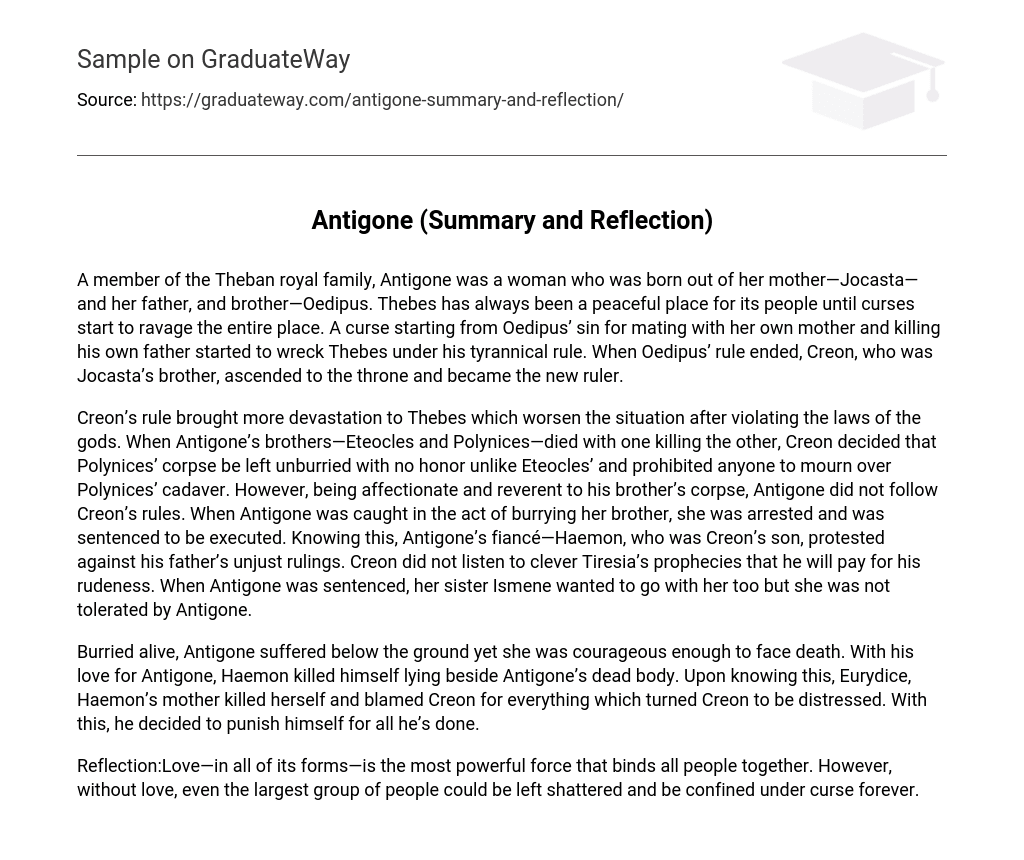Antigone, daughter of Jocasta and Oedipus from the Theban royal family, was born amidst a peaceful Thebes. However, as a consequence of Oedipus’ incestuous relationship with his mother and patricide, curses befell the city. These curses led to the suffering of Thebes under Oedipus’ oppressive rule. Following Oedipus’ reign, Jocasta’s brother Creon assumed power and became the new ruler.
Creon’s violation of the gods’ laws brought even more devastation to Thebes, worsening the situation. After the deaths of Antigone’s brothers, Eteocles and Polynices, with one killing the other, Creon made the decision to leave Polynices’ corpse unburied and without honor, unlike Eteocles’. He also prohibited anyone from mourning over Polynices’ body. However, Antigone, driven by her affection and reverence for her brother, chose not to obey Creon’s rules. As a result, she was caught burying her brother and subsequently arrested and sentenced to death. Haemon, Antigone’s fiancé and Creon’s son, opposed his father’s unjust rulings. Despite clever Tiresia’s prophecies warning Creon that he would face consequences for his arrogance, he did not listen. Ismene, Antigone’s sister, also expressed a desire to go with her but was not allowed by Antigone.
Burried alive, Antigone endured a life below ground but still had the courage to confront death. Haemon, fueled by his love for Antigone, took his own life to be with her and her deceased body. Learning of this tragic event, Eurydice, Haemon’s mother, also ended her life and held Creon responsible for everything, causing Creon great distress. As a result, Creon made the decision to punish himself for his actions.
Reflection: Love, in all its manifestations, is the unifying force that connects all individuals. Yet, in the absence of love, even the most extensive gathering of people can be torn apart and condemned to everlasting curse.





